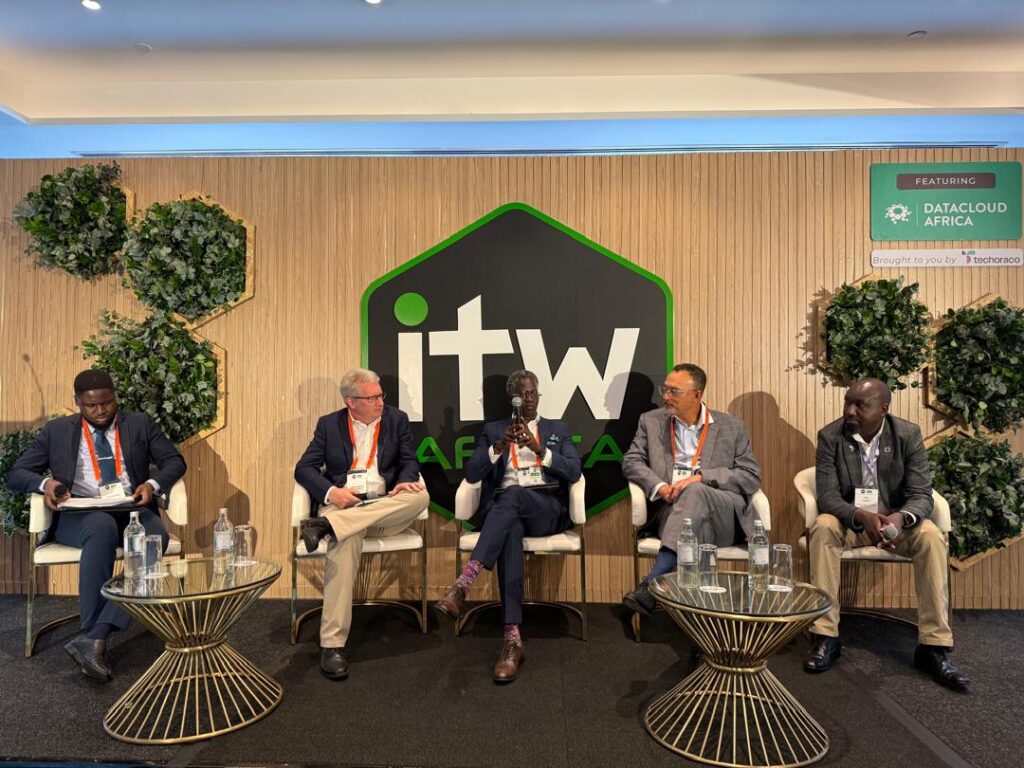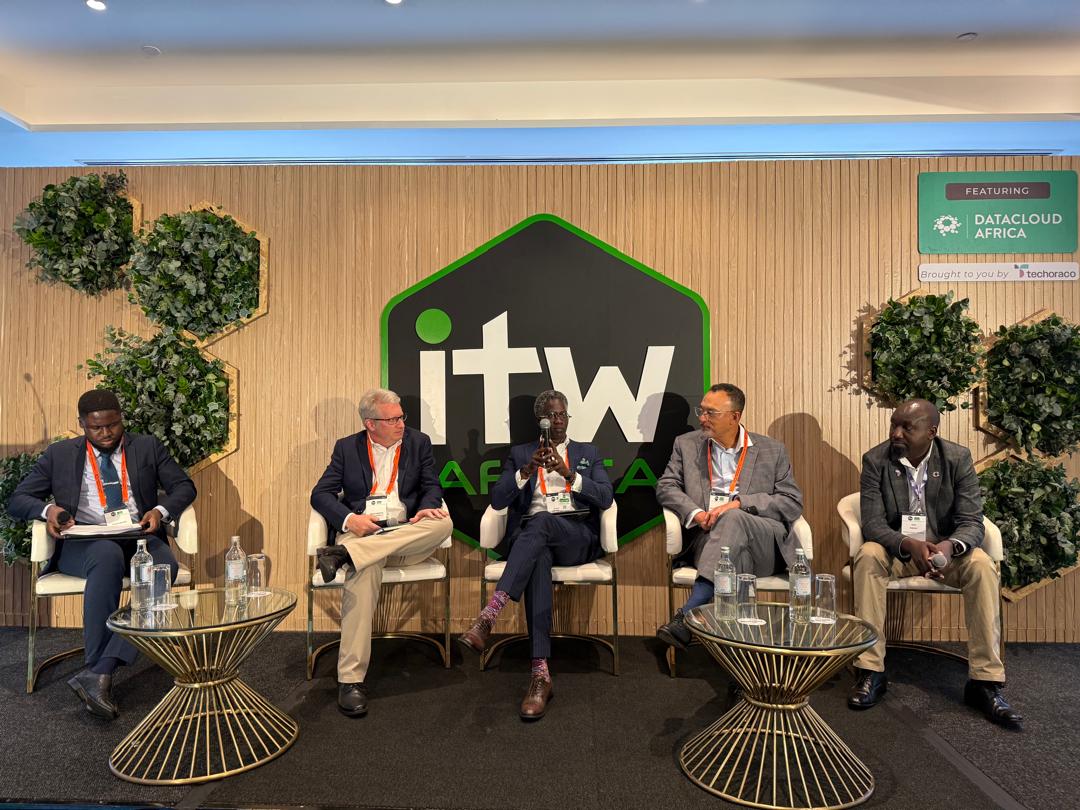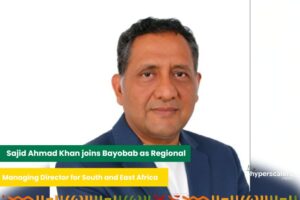A keynote panel at ITW Africa on the topic “The Question of Data Sovereignty: A Future of Digital Independence?” examined whether Africa’s push for data localization and ownership will drive true digital independence or risk fragmenting the continent’s digital ecosystem.
Moderated by Frank Raudo, Associate in Corporate & Technology at Spencer West, the discussion featured Stephen Kiptinness, Managing Partner at Kiptinness & Odhiambo Associates; Dan Kwach, Regional Executive for East Africa at Africa Data Centres; Ayotunde Coker, CEO of Open Access Data Centres; and Ben Roberts, Principal Advisor at Digital Economy Advisors.
Kiptinness, speaking from a legal and policy perspective, warned that many African governments are approaching sovereignty independently, creating statutes that overlook regional interoperability. “We miss an opportunity when we fixate on data localization rather than focusing on the benefits of usage,” he said. He argued for a classification approach that distinguishes types of data while aligning policies with the AfCFTA framework to enable the free flow of trade and digital services.

Kwach emphasized that data sovereignty should not be equated with isolation. “Let’s focus on changing the perception that sovereignty means digital independence rather than digital collaboration,” he said. He stressed the importance of creating conditions – skills, legislation, energy – for hyperscalers to thrive in Africa, while pointing to gaps in North Africa, particularly Morocco and Egypt, that need to be addressed. He also revealed that Africa Data Centres is investing in “AI factories” and exploring partnerships to bring AI suppliers to the region.
Coker called for pan-African alignment, likening it to Europe’s GDPR framework. “If we had sovereign rules across Africa, more developments would follow, including the creation of secondary markets,” he said. He suggested that regional hubs in South Africa, Kenya, Egypt, and Nigeria could anchor a continental data exchange system, with natural resources like Mozambique’s gas powering Southern African hubs. “AfCFTA needs a digital infrastructure sovereignty agenda that builds clusters across the continent,” he added.
Roberts said sovereignty cannot succeed without scale. “To do AI, we need volumes of data, compute, and talent. We have the people and the data centers, but we don’t yet have the compute,” he noted. He urged governments and investors to remove barriers, leverage natural resources, and consider overlooked geographies for investment.
The panel concluded that Africa’s digital sovereignty push is both urgent and complex. While frameworks are emerging, the path forward requires balancing national control with regional integration, ensuring policy flexibility, and creating the conditions for cloud, AI, and data-driven industries to scale. The stakes are high: without harmonized rules and adequate computing, Africa risks sovereignty in name only. With them, the continent could build a truly independent and globally competitive digital economy.
Ready to dive deeper into the hyperscale revolution impacting Africa?
READ MORE HERE: www.africa.hyperscalers.news
Contact Us:
Email: projects@hyperscalers.news
Phone: +2348109003350
Follow us on Social Media: Instagram, Facebook, LinkedIn, x





